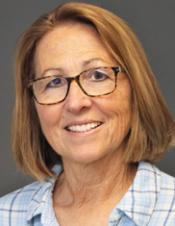
“Our ability to perceive the quality in nature begins as in art, with the pretty. It expands through successive stages of the beautiful to values uncaptured by language.” – Aldo Leopold, from “Marshland Elegy, A Sand County Almanac”
Art has the ability to connect people and nature and so it is only fitting that the work of renown conservationist, Aldo Leopold, will be celebrated. A scientist and educator who lived in the first half of the 20th century, Leopold founded the field of wildlife ecology and management. He is known as a conservation trailblazer, influential in the movement for wilderness preservation, land management and the development of environmental ethics.
As an accomplished writer, Leopold is best known by millions of people around the world for his book, “A Sand County Almanac.” Through humor, history and science, he “paints a picture” for each month of the year.
Leopold writes in his foreword, “There are some who can live without wild things, and some who cannot. These essays are the delights and dilemmas of one who cannot.”
To those unfamiliar with Leopold, let us delve into a little background. Leopold worked for the U.S. Forest Service before taking a professorship at the University of Wisconsin in Madison. In 1935, he bought an abandoned 80-acre farm in south-central Wisconsin with the intent of restoring it to the original prairie and woods it once was. This land would become his “experiment” in ecological restoration (a nonexistent field in the 1930s.) Leopold wrote, “On this sand farm in Wisconsin, first worn out and then abandoned by our bigger-and-better society, we try to rebuild, with shovel and axe, what we are losing elsewhere.” The Leopolds transformed the landscape from farmland that was once “corn stubble and cockleburs as far as the eye could see” into a healthy ecosystem.
The Leopold family wanted a place where they could enjoy a “weekend refuge from too much modernity.” So the “Shack,” as they fondly called it, was built from a dilapidated barn, which subsequently became much more than a weekend retreat. Here Leopold filled his journals with outdoor experiences and phenological records of the land.
Leopold also formulated his best-known idea, the land ethic, during his years at the Shack. The land ethic can most simply be described as “a caring, ethical relationship between people and nature” (The Leopold Foundation, 2023). Leopold strived to impart an understanding that direct contact with the natural world is crucial in shaping one’s ability to form connections. “When we see land as a community to which we belong, we may begin to use it with love and respect … “
I have been privileged to spend time at the Leopold Foundation in Baraboo, Wisc., the site of Leopold’s Shack and farm, which was designated a National Historic Landmark by the National Park Service in 2009 and where efforts to restore and maintain the now 350 acres continue. It was there that I truly began to understand the ever-challenging mission to inspire others to live Leopold’s land ethics. Next year will be the 75th anniversary of the publication of “A Sand County Almanac,” and I am excited to have the opportunity to bring Leopold’s work to the Lincoln Land Community College Academy of Lifelong Learning. I invite you to join us as we read, celebrate and discuss Leopold’s work.
An introductory presentation about Aldo Leopold and “A Sand County Almanac” will be held Wednesday, Nov. 1, at 10 a.m. in the Trutter Center. An experience-based discussion of each monthly essay will take place on the first Wednesday of every month beginning in January 2024. An optional second hour will include various activities, such as guest speakers, videos, outdoor explorations, crafts and even a cornbread cook-off.
Leopold wrote that “nothing so important as an ethic is ever ‘written’ … It evolves in the minds of a thinking community.” Become part of the “thinking” community and embark on this nature-reading journey with me. Observe and listen to the tapestry of stories that nature weaves and embrace Leopold’s enthusiasm for protecting this land we all share. After all, Leopold’s land ethics are for everyone.
“Once you learn to read the land, I have no fear of what you will do to it, or with it. And I know many pleasant things it will do to you.” -- Aldo Leopold
Call 217-786-2432 or visit www.llcc.edu/all to find out more about the Academy of Lifelong Learning and multitude of program offerings.
